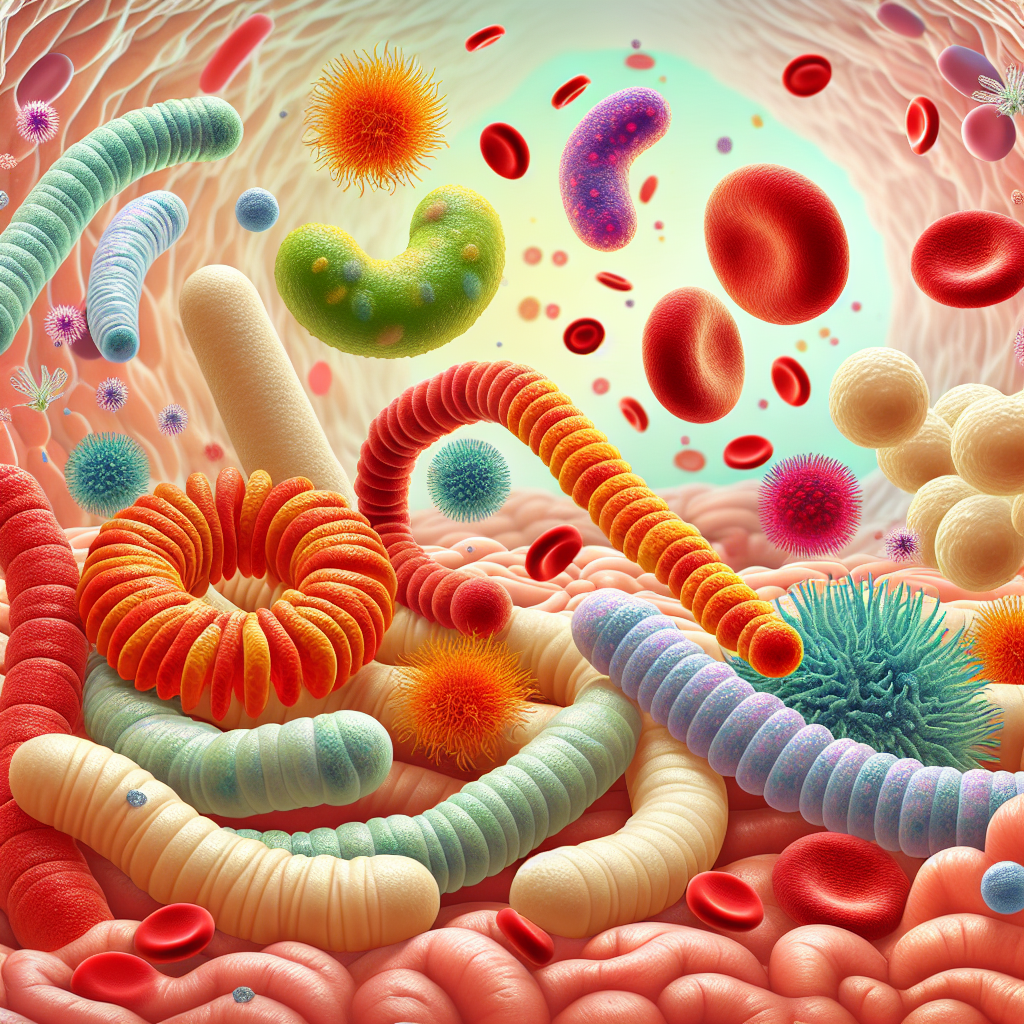Gut health is a critical aspect of overall wellness, influencing not only digestive processes but also playing a pivotal role in immune function. Recent scientific insights have unveiled a profound connection between the state of the gastrointestinal (GI) system and the development and management of autoimmune diseases. This article explores the intricate relationship between gut health and autoimmune conditions, delving into the mechanisms behind this link, and offering strategies to support a healthy gut microbiome.
Understanding the Gut Microbiome
The gut microbiome consists of trillions of bacteria, viruses, fungi, and other microorganisms living in the digestive tract. These tiny inhabitants are not mere passengers; they actively participate in various bodily functions, including digestion, vitamin synthesis, and the fortification of the gut barrier. Importantly, they also educate and regulate the immune system, ensuring it responds appropriately to threats without overreacting in a way that could lead to autoimmune disorders.
The Gut-Immune System Connection
Autoimmune diseases arise when the immune system mistakenly attacks the body’s own tissues, mistaking them as foreign invaders. This dysregulation can lead to a variety of conditions, such as rheumatoid arthritis, type 1 diabetes, and multiple sclerosis. The gut microbiome is instrumental in maintaining immune balance, and disruptions to this delicate ecosystem can precipitate immune dysregulation.
Leaky Gut Syndrome
A key factor in the gut-health and autoimmunity connection is the integrity of the intestinal barrier. A healthy gut lining acts as a selective filter, allowing nutrients to pass into the bloodstream while keeping harmful substances out. However, certain factors such as poor diet, stress, and medication can compromise this barrier, leading to "leaky gut syndrome." When the gut barrier is breached, it can trigger an immune response, potentially setting the stage for autoimmune diseases.
Microbial Diversity and Autoimmunity
Diverse gut flora is associated with robust health. Conversely, a lack of diversity—often caused by factors like antibiotics, poor diet, and lifestyle—can lead to dominance of harmful microbes that promote inflammation, a common precursor to autoimmune diseases. The reduction in beneficial microbes can also compromise the ability to regulate immune responses, further increasing the risk of autoimmunity.
Strategies for Supporting Gut Health
To foster a healthy gut microbiome and potentially reduce the risk of autoimmune diseases, consider the following strategies:
Diet and Nutrition
A diet rich in whole foods, particularly those high in fiber, can support beneficial bacteria in the gut. Prebiotic foods, such as garlic, onions, and asparagus, nourish good bacteria, while fermented foods like yogurt and sauerkraut provide probiotics that can help maintain a balanced microbiome.
For a deeper dive into the dietary aspects of gut health, explore Maximizing Nutrient Absorption for Digestive Wellness and The Importance of Prebiotic Foods in Gut Health.
Lifestyle Modifications
Stress management techniques such as meditation, exercise, and adequate sleep can positively affect gut health. Reducing stress hormones can help preserve the integrity of the gut lining and support a balanced immune response.
Avoidance of Negative Influencers
Limiting the use of antibiotics, which can disrupt the gut microbiome, and reducing the intake of inflammatory foods, such as those high in sugar and saturated fats, can also be beneficial.
Gut Health and Broader Wellness
The gut’s influence extends beyond the immune system, impacting various aspects of health. For instance, gut health is closely tied to Digestive Health, with implications for conditions ranging from irritable bowel syndrome to colorectal cancer.
The Role of Gut Health in Specific Autoimmune Diseases
Rheumatoid Arthritis
Research has shown that individuals with rheumatoid arthritis often have altered gut microbiomes. Targeting gut health through diet and probiotics may help modulate the disease’s progression and alleviate symptoms.
Type 1 Diabetes
Emerging evidence suggests that changes in the gut microbiome might play a role in the development of type 1 diabetes, particularly in early life. Ensuring a balanced microbiome during this critical period could influence the risk of developing the disease.
Multiple Sclerosis
Multiple sclerosis has been linked to gut dysbiosis as well. Studies have found differences in the gut bacteria of those with MS compared to healthy individuals. Modulating the gut microbiome through diet or probiotics could offer new avenues for managing the condition.
External Resources for Further Information
For those seeking more detailed insights into the connection between gut health and autoimmune diseases, the following resources provide valuable information:
- An in-depth review of the current understanding of the microbiome’s role in autoimmunity can be found in the journal articles published by the National Institutes of Health (NIH).
- The American Autoimmune Related Diseases Association (AARDA) offers resources on autoimmune diseases and their relationship with various lifestyle factors, including gut health.
- Insights into the latest research on dietary interventions for autoimmune diseases are available through the Autoimmune Wellness website (Autoimmune Wellness).
Conclusion
The link between gut health and autoimmune diseases is a testament to the complexity and interconnectedness of the human body. By nurturing our gut microbiome through informed dietary choices, lifestyle changes, and an awareness of the factors that impact gut integrity, we can potentially mitigate the risk and manage the symptoms of autoimmune disorders. As research continues to unravel the mysteries of the gut-immune connection, it becomes increasingly clear that the road to health is paved with mindful attention to our inner microbial world.
For a broader perspective on digestive wellness, consider reading The Role of Gut Health in Preventing Food Sensitivities and Advances in Probiotic Therapy for Digestive Disorders.



